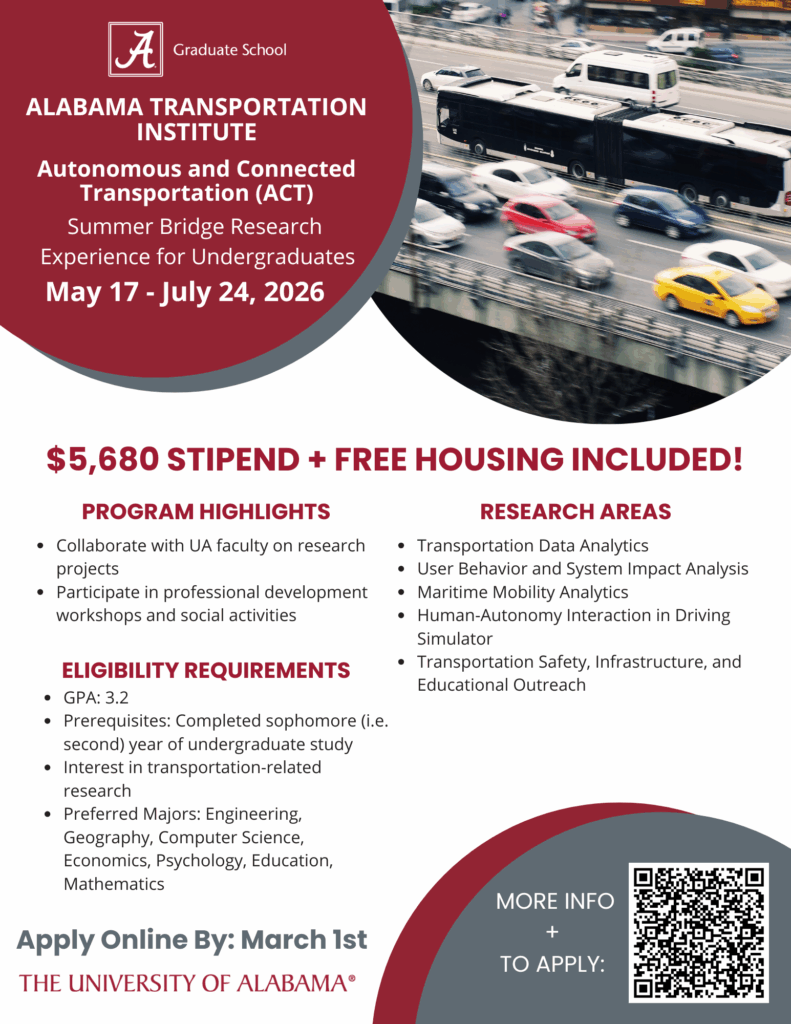Autonomous and Connected Transportation (ACT)

Program Description
Transportation supports personal autonomy and social connectivity, and increasingly vehicles themselves are becoming autonomous and connected. Students will conduct cutting-edge transportation research in areas including transportation data analytics, user behavior and system impact analysis, maritime mobility, and human-autonomy interaction in a driving simulator. Students will be paired with faculty based on interest.
Potential Research Areas
- Transportation Data Analytics: Students explore EV charging price data to understand how normal patterns look and how unusual changes might appear. Projects include spotting suspicious price jumps, daily patterns, or disruptions using statistical checks and visual tools.
- User Behavior and System Impact Analysis: Students study how people or systems might react when conditions change. Projects include seeing how cost, travel choices, or wait times shift under different situations, using basic logic, simple simulations, and visual comparisons.
- Maritime Mobility Analytics: Students analyze vessel movement data to understand how busy a port is and how congestion develops in surrounding waters. Work involves building basic congestion indicators and creating maps or charts that show how port activity changes over time.
- Human–Autonomy Interaction in Driving Simulation: Students will explore how people interact with vehicle automation in a state-of-the-art driving simulator. Projects include situational awareness, decision-making, and driver takeover behaviors during unexpected events. Students will collect, analyze, and interpret data to understand how autonomous systems affect the driving experience and overall roadway safety.
- Transportation Safety, Infrastructure, and Educational Outreach: Students will investigate roadway design, safety countermeasures, and pedestrian/driver behavior. Using real-world infrastructure examples, students will evaluate how roadway features (e.g., signage, crosswalk design, lane configurations, automated enforcement) influence human decision-making and safety outcomes, and develop targeted outreach strategies to promote safer mobility.
Apply Online By: Sunday, March 1st